Although I am
published in medical journals, I am not a scientist or a physician. I have a degree in marketing and sold real estate in Rancho Santa Fe, California for a living.
What changed my path in life (hopefully temporarily)

Sharon Kramer
is that I had a leak in an ice maker line back in 2001 and mold grew. The remediators had no idea what they were doing and they cross-contaminated our house. Blew mold everywhere.
I have a daughter with Cystic Fibrosis “CF” who is highly susceptible to mold. So of course, I did a lot of research when faced with this issue.
I became ill because my office was in the home. I was there everyday during the remediation process. I knew the mold, aspergillus, was potentially harmful for my daughter with CF. No one told me it could be hazardous to my health. In our litigation with our homeowner insurer (2002-2003), we made no claims of being ill from toxicity or of acquiring “life threatening illness”.Our claim was that the remediators had made the home uninhabitable for our daughter with CF.
Our insurer sued us for refusing to accept only $30K to rectify the problem . The case was presided over by Judge Michael P. Orfield, North San Diego County Superior Court. Long story short, we ended up receiving about a $500K settlement from our insurer, the remediator and the lab that had falsely cleared the house. Judge Orfield signed all three of the settlement agreements in 2003. He is now retired but his wife is still a judge in the San Diego North Courty Superior Court.
Judge Orfield was also the first judge in the libel suit that Mr. Kelman and Veritox (formerly known as GlobalTox) brought in 2005. He suppressed MUCH evidence corroborating this was Strategic Litigation Against Public Participation, “SLAPP”.
Mr. Kelman was retained as an expert defense witness in the litigation with our homeowner insurer. As a toxicologist with a PhD he was not qualified to testify to the safety of our home for our daughter with CF, even stating so in a
LETTER he sent to the defense attorney in 2002. Mr. Kelman wrote that
“a physician with detailed knowledge of the clinical condition of the child must be consulted”.But in the libel litigation he submitted declarations three times under penalty of perjury that stated with regard to our mold litigation. “I testified the type and amount of mold in the Kramer house could not have caused the life threatening illnesses she claimed”. His attorney, Mr. Scheuer then used this false statement in Mr. Kelman’s declarations to establish the false theme of a sour grapes litigant as reason for malice. Mr. Scheuer repeatedly wrote, “Apparently furious that the science conflicted with her dreams of a remodeled home, Kramer launched into an obsessive campaign to destro the reputation of Dr. Kelman and GlobalTox”.
The first time the perjury was submitted in Mr. Kelman’s
DECLARATION (see pdf page 5), was to Judge Orfield who knew or should have known this was perjury and suborning of perjury to establish a false theme for malice. He was reminded that he signed the settlement agreements and informed via my
DECLARATION (see pdf page 8) and exhibits of September 2005, that the above was perjury by Mr. Kelman to establish false theme for malice.
Mr. Kelman’s perjury to establish false reason for malice and his attorney, Mr. Scheuer’s repeated suborning of it, have cost me millions of dollars and taken several years of my life as I have had to watch the lives of thousand of others be destroyed from a scienctific fraud remaining in public health policy and in US courts. This is because for seven years now, every single judge to oversee the cases of Kelman & GlobalTox v. Kramer and Kelman v. Kramer have suppressed the evidence that the plaintiff committed perjury to establish false reason for malice while strategically litigating against public participation. It is a requirement in libel law that one has to show a reason for personal malice in order to establish constitutional malice (actual malice). Mr. Kelman lied under oath to establish this with the courts then falsely deeming me to be legally found to be a “malicious liar”.
As merely one example of at least fifty times the courts have suppressed the direct evidence that the plaintiff was committing perjury to establish false theme for the defendant’s malice, is my
PETITION for Rehearing, September 30, 2010. ( above linked pdf takes a few seconds to open). What it states, starting on page 22, is:
4. This court should recognize that one cannot use criminal perjury
to inflame the courts by making up a reason for the other party’s malice when strategically litigating to silence a whistleblower; even if one is an author of policy papers for the US Chamber of Commerce and the American College of Occupational and Environmental Medicine. AppRplyToCtQuery,pp.23-25) This Opinion ignores Kramer’s uncontroverted evidence provided since September of 2005; Kelman has been committing perjury of his “role as a defense expert in Kramer’s own lawsuit”. (App.Opn.Brf.Erta,pp.8-22)
A video of Mr. Kelman and I discussing his criminal perjury to establish false theme for malice and the damage it has done to me; along with him trying to use the libel litigation to force me to endorse his opinion as an expert witness in US mold litigations may be viewed on the right side of this page.
We sold the house with full disclosure in 2005 to a friend who is a contractor. My daughter is now 28, very health, and a video editor in LA. Part of why she is so healthy is because of what I learned going thru this issue that doctors are not taught about illnesses caused by mold. This proves the old adage “Something good comes from everything”. My other daughter, who does not have CF is grown and well on her way, too. She has a degree in zoology and works with animals – her life’s dream.
While researching what was happening to our home when going through the nightmare, I came upon thousands of people who are not as fortunate as we have been. They did not have the means to go buy another house or fly to go see specialists. They did not have a big Irish, family to see them through.
I couldn’t walk away without doing something to change the issue and stop the evidence of the ill health effects from being suppressed in policy, medical offices and the courts. Has little to do with biological science and much to do with the misuse of the science of marketing. I have a degree in marketing and understand how it can be a deadly science when misapplied by the unethical.
THIS IS WHY THEY HATE ME SO AND WANT ME SILENCED.
I GET IT.
ITS MARKETING STRAIGHT OUT OF THE BIG TOBACCO PLAY BOOK
I went to DC and told them there was a problem. I ended up moderating a Senate staff briefing over the mold issue with a panel of four scientists/physicians they let me pick and bring, 2006. That started the slooooooow change in federal policy.
Early on, I grasp the concept that what they were doing to deny causation of illness in courts was a simple twist of science mass marketed to deny liability. (this doesn’t just apply to mold. it applies to many environmental exposures).
With regard to mold they took a single toxicology model and mass marketed it to mean that it was highly unlikely people could be sick if they were exposed to inhaled mycotoxins indoors. (2002). A medical association, ACOEM, legitimized it, KNOWING they were legitimizing a
LITIGATION DEFENSE ARGUMENT.
They spun it further to mean people claiming illness from mycotoxins (notice “inhaled” is gone) were doing so because of “trial lawyers, media and Junk Science”. (2003) The US Chamber mass marketed it to the courts. They also promoted it as “toxic mold” with the implication that all illnesses from mold are related to toxicity. (think asthma and allergy are not toxic illnesses, etc)
They spun it even further in the courts that this modeling theory alone meant individuals “Could not be” made ill from mycotoxins because they fell below this hypothetical exposure limit established by a flawed toxicology modeling theory – projected it as no one could be made ill from mold (notice “toxic” is gone) or any of the biological contaminants found in water damaged buildings.
It became the concept in US policy and courts that anyone claiming illness from a water damaged building was just doing so because of “trial lawyers, media and Junk Science”. The courts, by and large, have been down right hateful to the sick and injured because they have had this false concept marketed to them.
It caused a push back of fear in that even if people were just a little sick, they would go to their doctors and the doctors would tell them they “could not be” sick from their buildings. (This also caused those who were very sick and desperately needed help to be distrusted by their physicians).
Knowing that wasn’t true that it had been proven mold does not harm, people would search on their own and find legitimate horror stories of worst case scenarios and think that applied to them. Sometimes it did, sometimes it didn’t. But there was no place to go to find clear answers. As is true with all good parents, they would choose to err on the side of precaution – which in many cases was a logical but unnecessary over reaction.
They over react, building owners under react, the really sick are distrusted by their doctors – making a perfect storm for the contention, confusion and litigation to thrive. With those who mass marketed the scientific misinfo, then make money off of the contention by serving as expert witnesses in the litigations that are resultant of their willful mass marketing of misinformation. In other words, they built their own industry by selling doubt of causation in policy.
I caused a federal
GAO audit that helped to establish these illnesses are plausibly occurring. (another reason they hate me so much) The Senate HELP committee and the late Sen Kennedy ordered it at my urging. I am trying to finish the job and knock it out of mold policy once and for all. See
letter to OSHA, etc.
As is always the matter, its never the original action that gets government into trouble. Its always the cover up for the wrongs. The California courts, particularly the Fourth District Division One Appellate Court in San Diego, were practicing politics, not law, when they first framed me for libel while being evidenced of the twist in science they were aiding to continue. They tried to shoot the messenger. Now they want to bury the bullets.
Now they KNOW they backed the wrong horse when they should not have been betting at all and are trying to shut me up of how they have aided the false science to continue in policy by what they have done to me for now seven years.
I am in a unique position, it is not an expert witness who has committed perjury in my case. Mr. Kelman is a plaintiff in the libel case that the courts have been concealing committed perjury to establish needed reason for malice by claiming he gave a testimony in my case with my insurer of long ago, that he is evidenced to have never even given. There was zero evidence presented in the libel case that I was even remotely unhappy with his minor role in my case with homeowner insure; or I that I had ever said a harsh word of any the the defense’s experts from the case. There were about seven of them.
ONE Ca judiciary acknowledging the uncontroverted evidence that the plaintiff committed perjury when strategically litigating against me to establish needed reason for malice – and the whole charade collapse – because the plaintiff is an author of the false science in policy for the US Chamber of Commerce and ACOEM. Because it is policy, he uses in court to support an unscientific expert opinion and states illnesses “Could not be” caused by the exposure – based solely on his mass marketed and greatly flawed toxicology modeling theory.
No longer is it just in science where the charade collapses, it politicians disguised as pillars of the California judicial branch that will also be exposed when it is acknowledged they all suppressed the evidence of a plaintiff’s perjury to establish false theme for malice as the framed the whistle blowing defendant for libel.
My writing of how it because a fraudulent concept in policy that moldy buildings do not harm is 100% accurate. Justice Judith McConnell, who wrote the 2006 anti-SLAPP opinion crafted it to make it look like I accused Mr. Kelman of lying about being paid to author the ACOEM mold statement. Nope! My writing accurately states the exchange of think-tank money was for the US Chamber’s mold statement.
McConnell’s anti-SLAPP Opinion of November 2006:
“This testimony supports a conclusion Kelman did not deny he had been paid by the Manhattan Institute to write a paper, but only denied being paid by the Manhattan Institute to make revisions in the paper issued by ACOEM. He admitted being paid by the Manhattan Institute to write a lay translation. The fact that Kelman did not clarify that he received payment from the Manhattan Institute until after being confronted with the Kilian deposition testimony could be viewed by a reasonable jury as resulting from the poor phrasing of the question rather from an attempt to deny payment. In sum, Kelman and GlobalTox presented sufficient evidence to satisfy a prima facie showing that the statement in the press release was false.”
I made no such accusation of Mr. Kelman lying about being paid to author the ACOEM mold statement. My purportedly libelous writing of March 2005 accurately states the exchange of money from the
Manhattan Institute think-tank was for the US Chamber’s mold statement. ACOEM’s was a version of the “Manhattan Institute commissioned piece”. From my purportedly libelous writing:
“He [Kelman] admitted the Manhattan Institute, a national political think-tank, paid GlobalTox $40,000 to write a position paper regarding the potential health risks of toxic mold exposure…..In 2003, with the involvement of the US Chamber of Commerce and ex-developer, US Congressman Gary Miller (R-CA), the GlobalTox paper was disseminated to the real estate, mortgage and building industries’ associations. A version of the Manhattan Institute commissioned piece may also be found as a position statement on the website of a United States medical policy-writing body, the American College of Occupational and Environmental Medicine.”
The plaintiff, Bruce Kelman, is the author of the toxicology modeling theory that was legitimized by ACOEM and the US Chamber. How these two papers were connected in marketing false science to mislead the courts was the subject of my writing. I explained it by using a case in Oregon. I was trying to get the word out that you can defeat the false science by making the experts discuss the marketing behind it. I feel I was pretty successful with this and know my efforts have saved many, many lives.
For this, I am going to jail for refusing to be silenced of how the CA courts have aided to defraud the public by being willing participants in seven years worth of malicious Strategic Litigation Against Public Participation. I am going to jail for putting the evidence on the internet, September 13, 2011, that the Chair of the California Commission on Judicial Performance, and many other leaders in California’s judicial branch know that she framed me for libel and suppressed the evidence that Mr. Kelman committed perjury, and all courts followed suit.
This is the main post they want off the NET and for which I am going to jail. Be sure to read the linked letters sent on September 11, 2011.
___________________________________________________________
If I am a liar, it would be very easy for Mr. Kelman, Mr. Scheuer and the California courts to prove it. All they would have to do is produce two pieces of evidence:
 1. that I was ever impeached as to the belief of the words “altered his under oath statements” as an accurate description of Mr. Kelman’s testimony in a trial in Oregon, February 2005; and
1. that I was ever impeached as to the belief of the words “altered his under oath statements” as an accurate description of Mr. Kelman’s testimony in a trial in Oregon, February 2005; and
2. the evidence that would corroborate that Mr. Kelman did not commit pejury to establish a needed theme for malice in the libel litigation.
In sevey years time, they cannot produce this. The evidence does not exist!
The courts framed a whistle blower of fraud in policy as they suppressed the evidence the author of the fraud committed criminal perjury, aiding the fraud to continue!
________________________________________________________
All I have to do is keep stating and providing the evidence of the truth of how and why the courts framed me for libel w/actual malice for the words, “altered his under oath statements” – the only words for which I have ever been sued; and then gagged me from writing of what they have done and are now going to jail me to conceal their misdeeds.
I am an old salesman. I know that if I keep knocking on doors and can show that what I am selling is based on sound fact, eventually a door will open and SOMEONE will listen. When that happens, they will shut down the fraud in mold policy & litigation; and rid California of compromised politicans disguised as pilars of the state’s legal system.
Notice to Court: Since when did it become a criminal offense punishable by incarceration for speaking the truth in America, with courts getting to pick and choose what uncontroverted evidence they want to acknowledge and
IGNORE? I know you can lock me away if you want,
Thomas Nugent. But I am not shutting up! I believe that protecting the First Amendment of the Constitution is worth the fight in order to keep the United States a free society.
PS. Could you ask my captors if they will give me Internet access while I am in coercive incarceration?
Mrs. Kramer
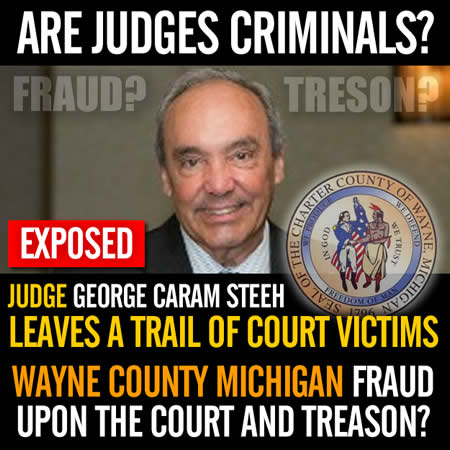
![]()







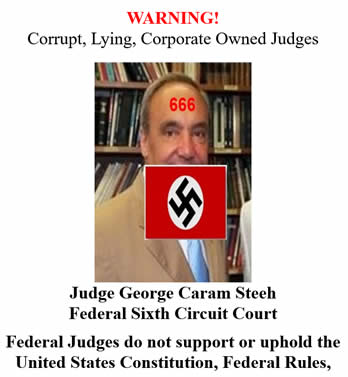




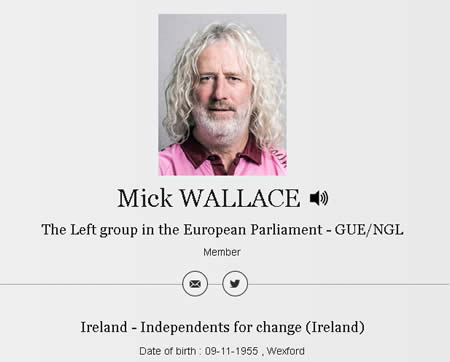

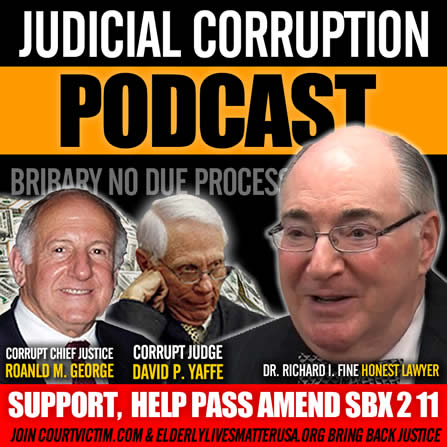
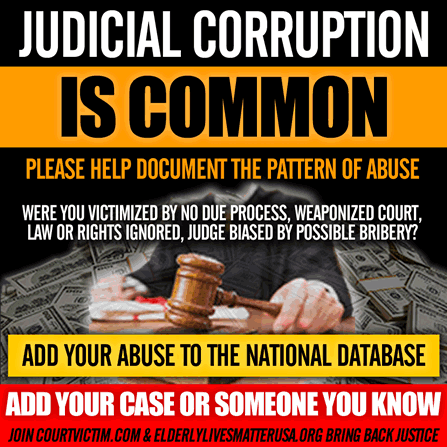
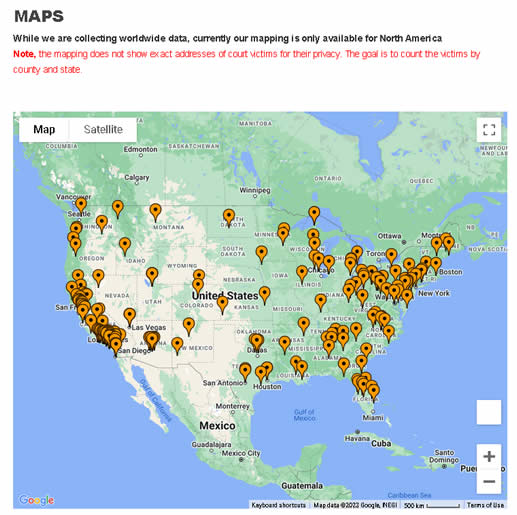
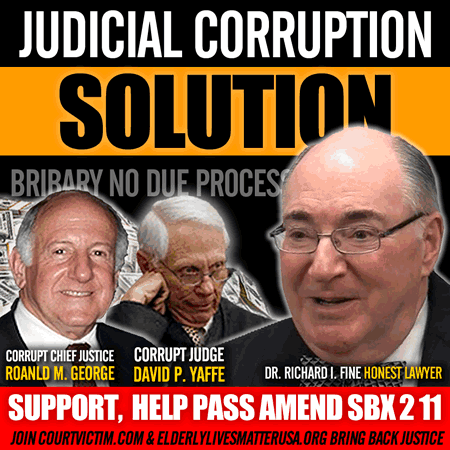



 1. that I was ever impeached as to the belief of the words “altered his under oath statements” as an accurate description of Mr. Kelman’s testimony in a trial in Oregon, February 2005; and
1. that I was ever impeached as to the belief of the words “altered his under oath statements” as an accurate description of Mr. Kelman’s testimony in a trial in Oregon, February 2005; and